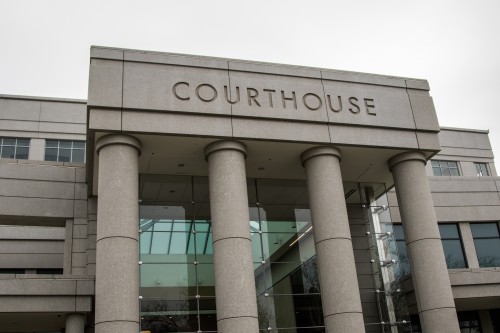
In many states across the nation, courts can revoke driver’s licenses for nonpayment of court costs. But a recent ruling by a federal judge in Tennessee found a law there which allows for such revocation violates the due process and equal protection clauses of the 14th Amendment to the Constitution. The law, beginning in 2012, led to the revocation of over 150,000 licenses during a four-year period.
According to an Associated Press article, lawsuits against this practice have been filed in five states over the last two years.
In the Tennessee ruling, Judge Aleta Trauger called the law “powerfully counterproductive.
“If a person has no resources to pay a debt, he cannot be threatened or cajoled into paying it; he may, however, become able to pay it in the future. But taking his driver’s license away sabotages that prospect,” the judge wrote in her ruling last week.
Last year, California passed a law that prohibited the suspension of licenses for unpaid court debt.
San Francisco, on July 1, became the first jurisdiction in the country to lift some court costs. The Board of Supervisors passed an ordinance that eliminated fees within the county’s discretion. The ordinance states: “These fines, fees, and penalties can trap people in a cycle of debt, and low-income people and people of color are often hit the hardest. Under this system, government  becomes a driver of inequality.”
becomes a driver of inequality.”
That leaves in place a number of mandatory fees across the state, but does eliminate fees for probation, electronic monitoring and jail booking.
In a Washington Post op-ed, Joanna Weiss and Lisa Foster, co-directors of the Fines and Fees Justice Center, write, “Fines and fees do not affect only those with criminal convictions. Even a minor traffic offense can saddle a person with crippling debt.”
They note: “In many states, people who cannot afford to pay their fines and fees immediately are subject to interest charges and late-payment fees. They may have their driver’s or occupational license suspended. They may not be able to vote, and they may even go to jail.
“An emerging body of research reveals that debt from fines and fees often forces families to choose between paying their debt or paying for essential goods and services such as health care, food or housing. Court debt limits access to employment and student loans and adversely affects credit,” they write.
And of course, communities of color are most likely to suffer from abusive fines and fees practices. This is “because of overpolicing, the demographics of poverty (a majority of people living in poverty in the United States are people of color) and racism.”
An article in The Appeal on July 2 noted that Californians are subjected to 684 criminal justice financial penalties, according to a report from the California Reinvestment Coalition (CRC).
The article notes: “Most of these are fines intended to be punitive, like a speeding ticket. Fifty-seven are fees, user charges tacked on to help fund the courts. These debts can pile up quickly; a $100 ticket for running a red light in California, for example, comes with an additional $390 in fees. As time passes, interest compounds and late-payment fees get added to delinquent debt, making it even harder for those who fall behind to pay what they owe.”
As reported in The Appeal, the major beneficiaries tend to be private debt collection agencies. In California, commissions can range from 12 to 18 percent for newly delinquent debt to over 25 percent for debts older than five years.
“In California, [debt collection agencies] are getting commissions of 12 to 18 percent, which is on top of debt we don’t even know if people can afford to pay,” said Joanna Weiss.
Ms. Weiss added, “We’re taking something not meant to be punitive and punishing [people] for their poverty.”
“If there were an effective cost-benefit analysis for counties on these fines and fees, the costs would far outweigh the benefits,” said Nancy Fishman, a project director at the Vera Institute of Justice.
But Ms. Fishman told The Appeal that most counties do not pay close enough attention to how much money they actually make off fines and fees.
Moreover, according to Ms. Weiss, “almost every state in the country has increased its fines and fees over the last five years; especially after the 2008 recession, such charges were seen as an ideal way to generate revenue. In California, a $155 charge for a stop violation in 2005 became a $283 charge in 2015. In both years, the base fine was $35.
“We have an allergy to taxes, and there are few ways municipalities can raise money: taxes, utilities, and fines and fees,” Weiss said. “Fines and fees is the most regressive way, but often happens without a lot of the public weighing in, understanding, or being concerned.”
According to the CRC report, 64 percent of people arrested and subsequently subjected to fines and fees in California are people of color.
San Francisco notes this in its ordinance: “Indeed, the burden of these fines and fees falls heaviest on the African-American community, which accounts for less than 6% of the population of San Francisco, but makes up over half the population in the county jail.”
Ms. Fishman tells The Appeal it is impractical to demand that those who pass through the criminal justice system should be responsible for paying for it.
“If a lot of the folks being charged are poor people and don’t have the money,” she said, “charging them all these fines and fees is 1) not going to get you the money you need, and 2) is going to pull these people further into the justice system and make it that much harder for them to become contributing members of that community.”
—David M. Greenwald reporting





